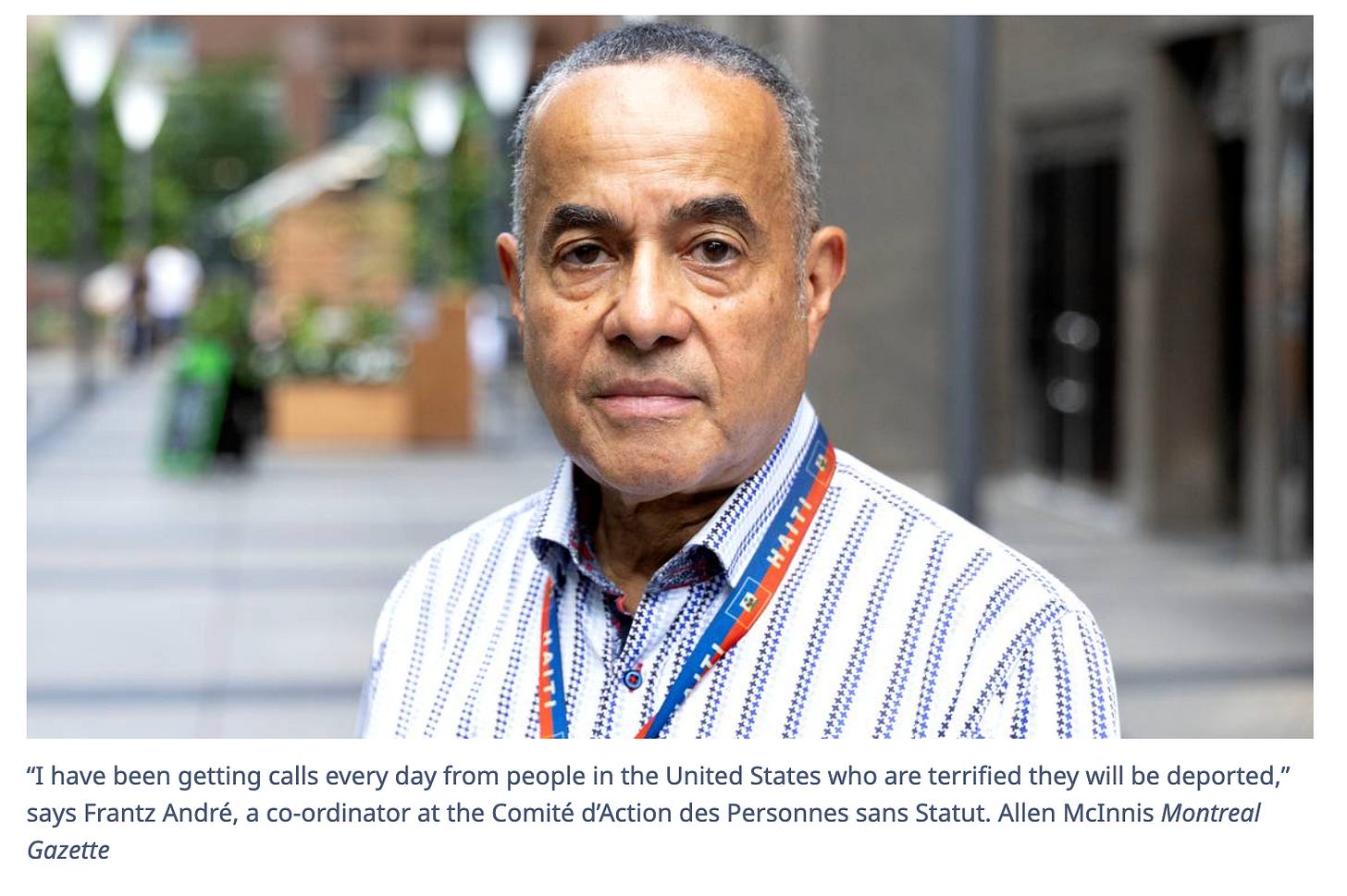Montreal Expects Over 21,000 Haitians to Seek Asylum from U.S. – Officials Anticipate Some Heading to Vermont
As uncertainties surrounding U.S. immigration policies intensify, Canadian officials and community leaders in Montreal are preparing for a notable increase in Haitian asylum seekers in 2025, with estimates surpassing 21,000 individuals potentially crossing into the city and Quebec region, based on data from the Immigration and Refugee Board of Canada and insights from community advocates.
This expected rise is linked to the end of Temporary Protected Status (TPS) for more than 500,000 Haitians in the U.S. on August 3, 2025, reminiscent of patterns seen during previous administrations and tied to persistent humanitarian issues in Haiti, as outlined by migration specialists and U.S. policy updates.
Meanwhile, in the neighboring U.S. state of Vermont, officials are anticipating that some Haitians may opt to relocate there instead, drawn by the state's welcoming stance toward immigrants and its pressing demand for additional workers to bolster the economy.
Vermont’s Labor Needs
Vermont's labor market faces significant shortages due to an aging population and retiring workforce, with projections indicating a need to add around 13,500 people to the labor force each year through 2035 to sustain growth and fill vacancies in sectors like construction, healthcare, manufacturing, and services.
Immigrants, including those from Haiti, are viewed as key contributors, according to the Vermont Asylum Assistance Project, being the fastest-growing working-age demographic in the state and 80% more likely to start businesses, which could help address these gaps while injecting economic vitality through taxes and spending power estimated at $619.9 million annually.
The Canadian projections are informed by the Immigration and Refugee Board of Canada (IRBC), which processed about 21,800 Haitian asylum claims in 2024. Officials expect this to climb in 2025 amid U.S. shifts under President Donald Trump, such as the winding down of humanitarian parole for Haitians and others, per federal immigration notices and border reports.
Why Montreal?
Montreal's appeal as a hub stems from its robust Haitian diaspora of over 150,000, offering cultural connections, French-language alignment, and family support, according to diaspora groups and census information. Data from the Canada Border Services Agency (CBSA) reveals a spike in claims at the Saint-Bernard-de-Lacolle crossing near Montreal. Haiti tops the list for asylum claims at the U.S.-Canada border in the first half of 2025, based on IRBC and CBSA data.
Employers have praised their contributions to the workforce, and state initiatives like the proposed Office of New Americans aim to streamline support for immigrants, including job placement, credential recognition, housing, and language services, directly tying into efforts to combat labor shortages.
Premier François Legault has raised capacity issues, noting Quebec cannot accommodate "all the world’s misery" amid strains from 600,000 temporary immigrants on housing, schools, and healthcare, as stated publicly.
Lack of Capacity
Montreal shelters run at 130-300% capacity, with asylum seekers filling over 70% of beds in certain spots, based on aid group reports. 2 sources
Under Prime Minister Mark Carney's leadership since March 2025, Canada upholds commitments to valid claims while reinforcing borders via the Canada-U.S. Safe Third Country Agreement, as per policy documents. Critics point to system overloads causing years-long delays, per groups like the UNHCR. UNHCR figures highlight Canada's long-standing refugee intake of over one million since 1980, with 2025 possibly marking highs.
As the TPS deadline nears, experts caution about border humanitarian strains, but in Vermont, the focus remains optimistic: "We win by celebrating our allegiance to the same diaspora," echoed Frantz Benjamin, Quebec National Assembly vice-president, at the summit.
For both Montreal's vibrant Haitian community and Vermont's workforce-hungry economy, the months could have a substantial impact.


